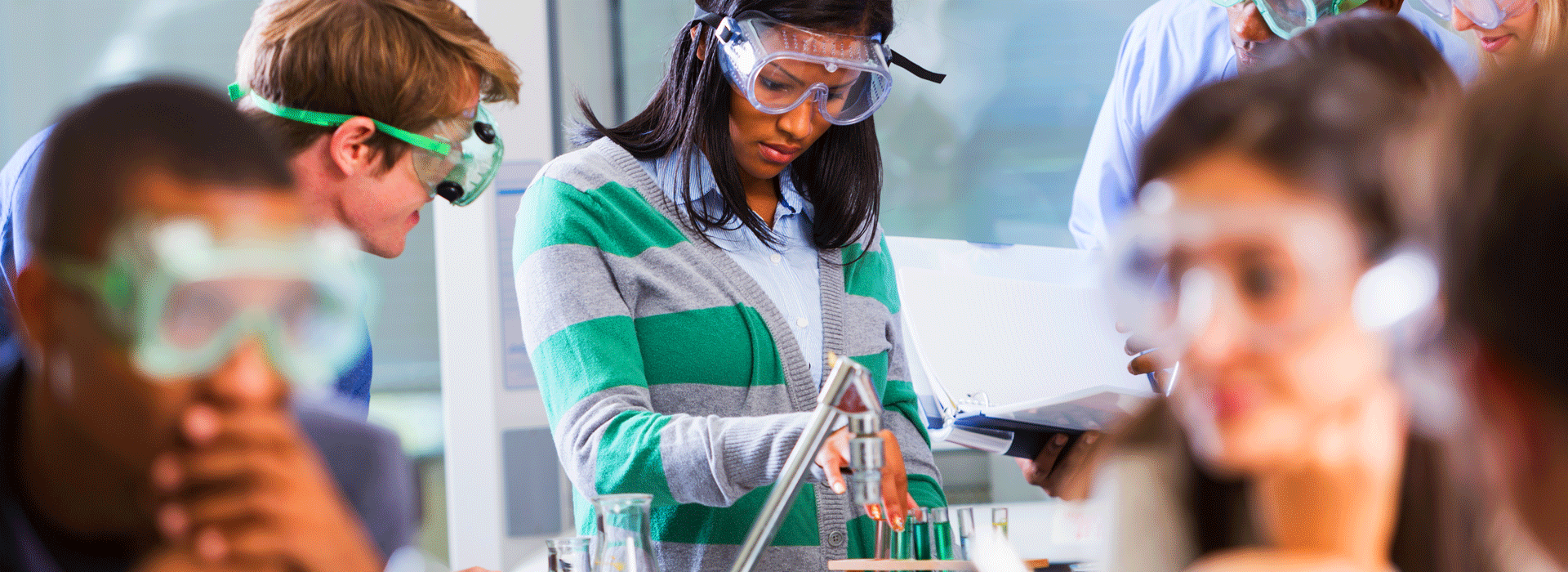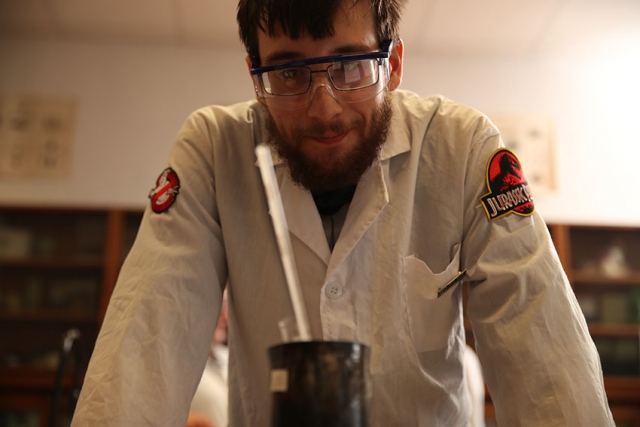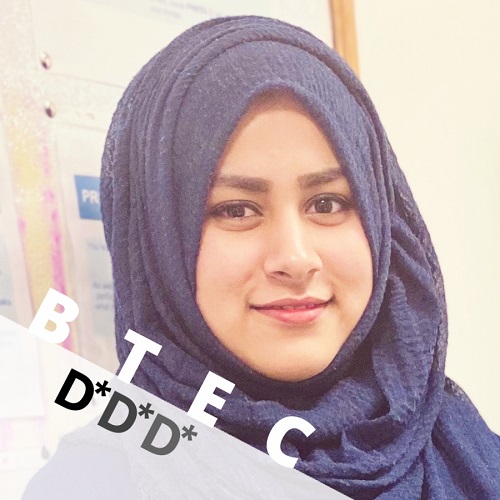Key Facts
-
Starting
7 Sep 2026- Location
- Kingston Hall Road Centre
- Duration
- 1 Year
- Study Mode
- Part Time Day
- Start Date
- Sep 2026
- Level
- Level 3
- Code
- KSH3011CP
Fees
- Fees
- £ 0 - 6,768

Access to Higher Education Diploma - Science
The Access to HE Diploma - Science is an ideal course for adults (aged 19+) who have a keen interest in the study of science in Higher Education. The course is suitable for students with a wide range of previous educational or career experiences who wish to pursue further study and a career in a science related profession, and for anyone seeking a career change. The Science diploma is widely recognised by Universities and leads to a broad range of degrees, such as those with vocational links - Physiotherapy, Nutrition and Dietetics, Occupational Therapy or Radiography, and pure and applied Science - Biology, Chemistry and Environmental Sciences.
The diploma is an intensive course, and taught over 3 consecutive, full days per week. A mature approach and a high level of commitment is required. The government Advanced Learner loan is available for students 19 years plus and is non repayable if a Higher Education course is completed. In addition, a non-repayable bursary may also be available for some Allied Health related degrees, including but not limited to those vocational degrees mentioned above.
-
Entry Requirements
We will invite you to a Meet the Tutor event where you will receive information, advice, and guidance about the course you have applied for. This will be an opportunity for you to gain valuable information about the course and give you the opportunity to ask any questions you may have.You will provide a reference from an employer or relevant professional other. This is to ensure we can support you to be able to achieve well on the course.
Candidates must have GCSE Mathematics at grade C/4 or above or Functional Skills maths at Level 2; GCSE English at grade C/4 or Functional Skills English at Level 2; and GSCE Science at grades C/4 or above.
Please note that it is the responsibility of the student to ensure their current and future qualifications comply with the entry requirements of any university to which they intend to progress.
We are firmly committed to finding the right course for you to ensure you can flourish! Talk to us today if you have any concerns about the application process, we are here to help take you to the next level.
-
Course Content
The units listed below are indicative of the course content, you will also need to achieve some standard study skills units:Biology - Introduction to major themes of biology such as Cells, Biological Chemistry, Laboratory Skills in Biology, The Digestive System, The cardio-vascular system.
Chemistry - Introduction to matter (atoms, ions and molecules), Organic chemistry, Acid-Base Equilibria, Chemical Kinetics, Amount of substance (moles).
Physics - Application of health physics, Energy, Motion & Forces, Fields in Physics.
Maths - Algebra and Calculus.
-
Progression Next Steps
The Access to HE Science is specifically designed for students to progress directly to science related degree programmes.Previous students have graduated from a wide range of degrees including:
- Physiotherapy, Radiography (St. George's)
- Marine Biology (Southampton)
- Nutrition & Dietetics (Surrey)
- Biomedical Science (Royal Holloway)
- Physics (King's College)
- Aerospace Engineering (Kingston University)
- Chemistry (Southampton)
- Pharmacy (Brighton)
- Radiography (St. Georges)
- Psychology (Southampton)
-
Additional Information
The course is delivered over 3 days per week over one year, September start only.Approximately 15 hours a week including a one-hour tutorial. Students are expected to undertake an additional 15 hours a week of unguided private study.
For further information please contact us on 020 8268 3073 or email admissions.kingston@stcg.ac.uk
The Access to HE Diploma - Science is taught at Kingston College, which has good transport links from London and surrounding areas.
-
Course Structure
The Diploma is taught by subject specialist teachers who will give you an intensive one-year introduction to Biology, Chemistry, Physics and Maths.The diploma consists of 60 credits, 45 graded credits in Science units and the remaining, non-graded, 15 credits from study skills.
Units are graded (Pass, Merit or Distinction) and are split between subjects as follows:
- 5 units (15 credits) in Biology
- 5 units (15 credits) in Chemistry
- 3 units (9 credits) in Physics
- 2 units (6 credits) in Maths
The remaining 15 credits come from the 5 Study Skills including, Preparing for Higher Education, Report writing, Research and Exam skills, which develop essential skills for successful study in Higher Education.
-
Assessment Details
A wide range of assessment techniques are used throughout the course, these are designed to give students experience of the range of assessment types commonly found in Higher Education courses.Types of assessment may include, but are not limited to: In class tests (Exams), Written Assignments, Laboratory Reports, Practical work, Presentations etc.







